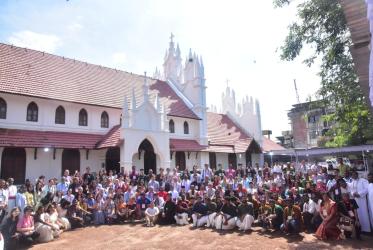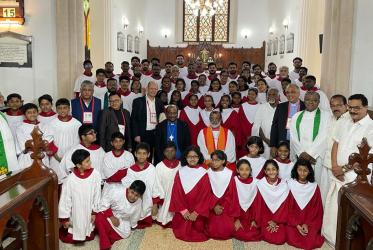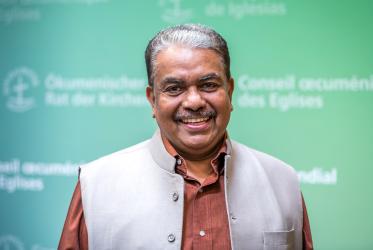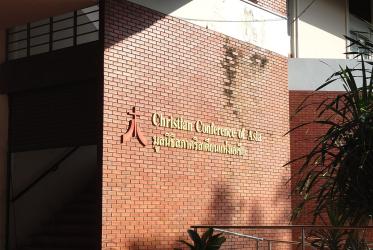A gathering hosted by the National Council of Churches in India (NCCI) on 26 April allowed 50 participants to deliberate on the World Council of Churches statement “Economy Of Life: An Invitation To Theological Reflection and Action.”
Taking place the day before the 28th Quadrennial Assembly of the NCCI, the consultation drew church leaders, theologians, scholars and activists to Jabalpur, India.
Rev. Dr Prem Chand Singh, deputy moderator of the Church of North India and the bishop of the Jabalpur diocese, addressed the gathering, noting in today's globalized world, money becomes an empire and every minute is valued in terms of money. “The so-called 'service' becomes employment, 'knowledge' is commercialized, 'body' became a commodity, 'land' became product, and crops and grains are seen as profits and loss,” he said.
He invited the ecumenical movement to initiate a new pilgrimage — a pilgrimage of justice and peace with the vision of an alternative economy: an economy of life that is just and inclusive.
Rev. Dr Roger Gaikwad, NCCI general secretary, also spoke, describing today’s human lives as ‘"branded lives.” Today, he said, no human has value in an economically globalized context. “This is a danger and will ruin the so-called economically poor, and the rich-poor divide will become huge.
Participants affirmed the economy of life is a profoundly theological affirmation that reimagines koinonia as the flourishing of the economy of life.
“As we examine what it means to flourish as a people, we begin to reimagine a global economy that brings hope to all,” said Athena Peralta, WCC consultant for economic and ecological justice. “To bring this about, we must accompany communities in the margins and better understand the challenges of others.”
Participants in the consultation discussed how their participation in the blossoming of the economy of life is a translation of their baptismal vows to denounce the powers and principalities of current times and to affirm the lordship of Jesus. They agreed that an economy of life is based on alternative moral visions of communities at the margins, and it requires a commitment to renew our baptismal vows through new baptismal experiences of immersion in the struggles of others.
They also suggested that the economy of life could be an interfaith initiative that recognizes the universal reality of the divine, manifested through diverse mediations. Ultimately, they agreed, the economy of life is the affirmation of faith in the promise that God will transform the face of the earth.
The consultation developed a statement that was presented at the NCCI assembly. Discourse about the economy of life will be part of the NCCI's programme priorities for 2016 - 20.
Full statement from National Council of Churches in India on “Economy of Life”





